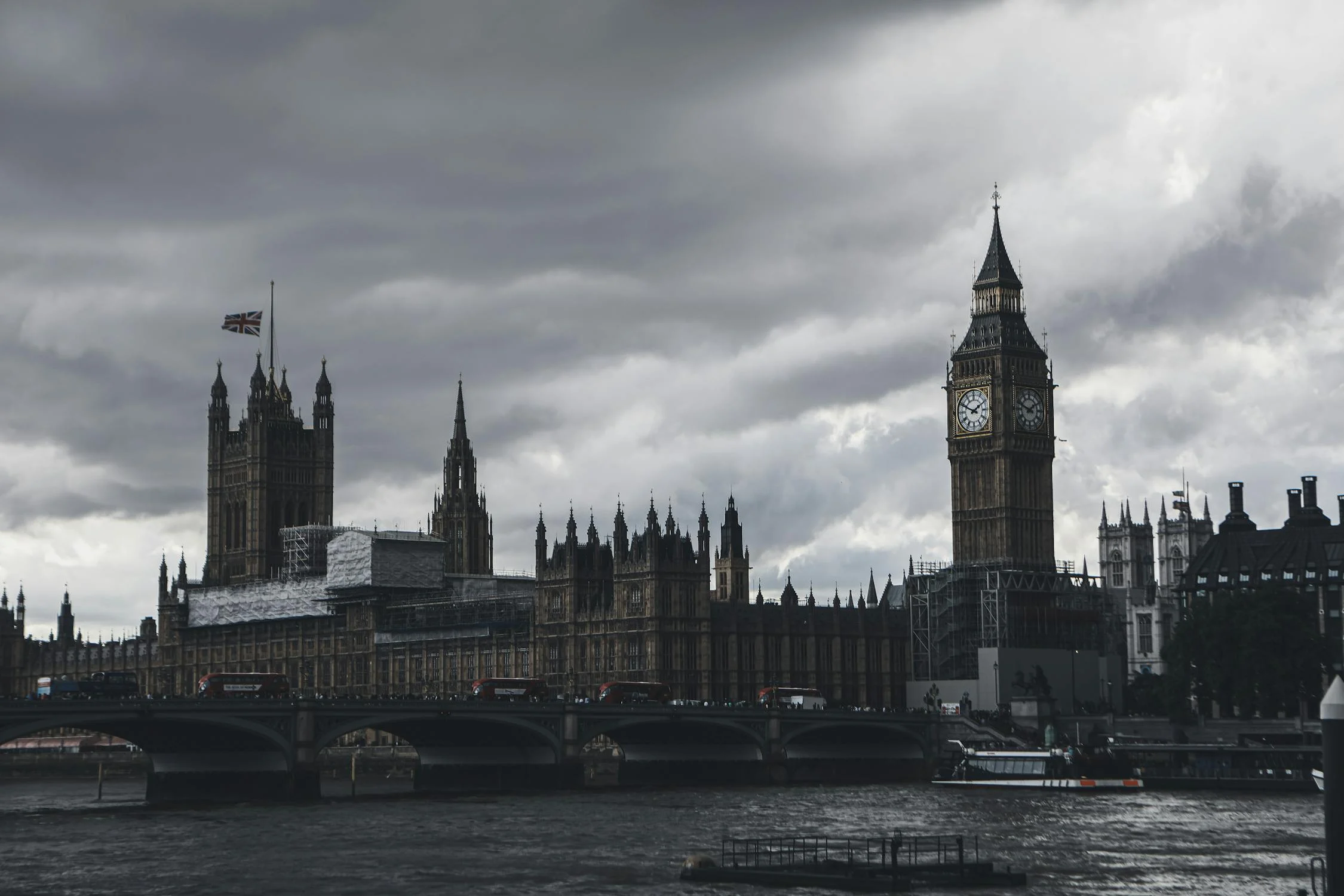The weather is glorious but the forecast is uncertain
Enjoy the beautiful sunshine, the drinks on the lawn, and the bliss of British summertime heat upon your skin. As we enter the warmer months, the UK weather forecast appears more uplifting than its economic equivalent, for we are entering a period of great upheaval in the world economy. While there are undoubtedly rays of optimism, an eerie cloud of monetary uncertainty looms over the globe.
Firstly, let’s talk Trump. The US President’s waves of protectionist measures, which have thus far defined the year’s economic agenda, have caused projections for growth to wilt. The most notable of these was the imposition of a 145% minimum tariff on Chinese goods. Despite tariffs being temporarily lowered as part of ongoing negotiations, there is little confidence in predicting a definitive outcome. A report by the International Monetary Fund (IMF), entitled A Critical Juncture Amid Policy Shifts, foresees a global growth projection drop of 2.8%, citing the highly uncertain nature of trade policy—mainly hailing from the White House—as the key hindrance to growth. The pendulum of shifting policies and reoriented economic priorities has created a frenzied, incoherent financial environment. The world economy has become dazed and confused, akin to having too much to drink on a sun-kissed British field.
The reduced rates of growth have hit their main perpetrator hardest. Among advanced economies, no nation has suffered a worse reduction in its growth rate forecasts than the US, with the IMF foreseeing a 0.9% drop, and the US Bureau of Economic Analysis already reporting a 0.3% GDP decrease in the first quarter of this year. Through the installation of barriers to entry for enterprises, the US has upended conventional contemporary economic policy, becoming the central hub for the world’s ongoing pecuniary incoherence—and in the uncertainty of it all, the markets have been left uncomfortably squirming.
“There is nothing more certain and unchanging than uncertainty and change”
— John F. Kennedy
Making policy decisions by dice roll doesn’t exactly inspire profound fiscal faith. In the first 100 days of Trump’s second term, he masterminded an almost 8-point loss to the US stock market, marking Wall Street’s worst monetary regression within the first 100 days of a President assuming office since Gerald Ford in 1974—a far cry from the “economic boom” promised on the campaign trail last year. Further compounding these concerns, the Institute of Financial Studies projected a “shallow recession” for the States in the latter half of 2025, adding to the US’ gloomy economic forecast.
While consistency from Washington would be ideal, that is evidently unlikely to happen. Writing this article has been nightmarish because the situation is so unpredictable. The moment words are written; they instantaneously become outdated as developments continue. Amidst this suffering, I couldn’t help but think about how the world’s economists, bankers, and financiers must feel in such turbulence. One moment, Trump is the great protectionist; the next, he is striking up deals and agreements all over the globe—whether it be with Britain, Saudi Arabia, Qatar, or India. Within such an economic environment, the words of John F. Kennedy hold great truth: “There is nothing more certain and unchanging than uncertainty and change.”
The UK has secured a “first-of-a-kind” trade deal with the US, worth up to £4.8 billion annually
The UK has by no means escaped the fallout of its special relation’s unpredictable fiscal policies, with its growth rate suffering a projected 0.5% drop. £2.7 billion worth of British steel, aluminium, and related products were hit by US tariffs, although he implemented no retaliatory tariffs. His pragmatic, patient response has proved fruitful—the UK has secured a “first-of-a-kind” trade deal with the US, worth up to £4.8 billion annually. Astute fiscal arrangements have come thick and fast for Starmer, with the US deal coinciding with a UK-India agreement expected to boost bilateral trade by £25.5 billion, contributing to a hopeful narrative for Britain’s future financial prospects.
In a fit of pathetic fallacy, as the UK braces for a hotter-than-average summer, it can also take solace in retaining higher growth projections than major European economies, including Germany, France, and Italy. Chancellor Rachel Reeves has maintained caution, however, insisting “we are in a new era of global trade,” assuring Britons that the UK Government is “stand[ing] up for Britain’s national interest”. Indeed, HM Government is taking fruitful steps to subvert poor economic performance. The “pursuance of growth through the sunlight of bureaucratic liberation” further reinforces economic optimism; however, only time will provide definitive answers to the merits of these solutions.
Chief economist at the IMF, Pierre-Oliver Gourinchas, echoed Reeves’ framing of a ‘new era’. He noted that “the global economic system that has operated for the last eight years is being reset”, the result of “intensifying downside risks dominat[ing] the outlook, amid escalating trade tensions and financial market adjustments”. The Fund’s biannual report called for “clarity and coordination” to support the reinvigoration of international cooperation, aiming to ensure stability for the now-jittery world markets. The notion is sanguine—typical for the IMF—but the actualisation of international cooperation, given the in-flux nature of policy, is another matter.
Still, perhaps we all need to undergo some financial photosynthesis. With clear skies, steady policy integration, and a sprinkle of unanimous coherence, there’s hope for reversing the globe’s varied but overall bleak fiscal forecasts (though there can be doubt that Trump needs the tan).

Comments